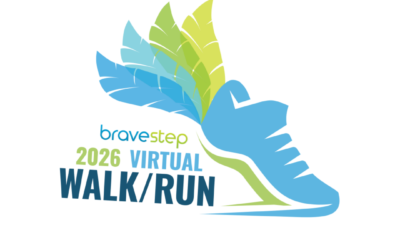Loved Ones Certified Facilitator Training
Welcome
- Intimate partners of adult survivors
- Family members and/or allies of a young survivor
- Family members and/or friends of adult survivors
Next Training: Early 2026
The Training
Welcome to the Loved Ones Facilitator Training. Designed to prepare mental health professionals to deliver a high-quality, effective curriculum to loved ones and allies impacted by sexual violence, the training focuses intensively on one selected curriculum.
As a facilitator, your role will be pivotal in maintaining the integrity and efficacy of the program. To achieve this, you will undergo comprehensive training that will equip you with the essential information, techniques, methods, incentives and materials necessary to master the curriculum.
Training Methods
Our approach to training will be highly interactive and practical. You will engage in role-playing exercises where you will simulate the experience of being a member of a Loved Ones’ group. This will provide you with a deeper understanding of the participant’s perspective and the dynamics of group interactions. Additionally, you will explore and discuss the responsibilities and strategies of leading each section of the curriculum. This hands-on approach is designed to enhance your facilitation skills and ensure you can effectively guide participants through the program.
Continuing Education Hours

Details
Licensing & Qualifications
Licensing & Qualifications:
- Facilitators must be licensed mental health professionals (e.g., LCMHC, LCSW, LMFT, PhD, or PsyD).
- The facilitator must have at least two years of post-licensure experience working with individuals impacted by sexual trauma.
Experience with Sexual Trauma:
- Given the sensitive nature of the work, facilitators should have experience working with survivors of sexual violence or their loved ones.
- This experience is crucial because it helps the facilitator understand the emotional complexities and nuances of working with this vulnerable population.
Group Leadership:
- The facilitator must have experience in leading group sessions. This ensures they are skilled in managing group dynamics and creating a safe and supportive environment for participants.

A facilitator must also:
- Pass a background check including, but not limited to, a criminal check and licensure verification.
- Successfully complete the facilitator training and demonstrate the ability to utilize and be well versed in the curriculum.
- Work collaboratively with the Brave Step staff.
 Role and Responsibility
Role and Responsibility
As a facilitator for the Brave Step Loved Ones groups, you play a crucial role in ensuring the effectiveness and integrity of the program. The following requirements outline your responsibilities and the essential qualities needed for leading these groups:
1. Implementation of Curriculum: You are responsible for delivering the curriculum for which you have been trained. This includes adhering to the prescribed methods, content and structure to ensure program fidelity.
2. Creating a Supportive Environment: Maintain a friendly and compassionate social atmosphere. Your approach should foster trust, openness and mutual respect among participants.
3. Crisis Intervention: Be prepared to intervene effectively during crises involving group members. Your role includes providing immediate support and guidance to help members navigate their challenges.
Expectations
- Facilitators are asked to schedule and facilitate at least three groups during the two years following the training.
- Facilitators are allowed to charge a reasonable fee and/or material fee to cover time and expenses.
- Facilitators are required to submit pre-and post-surveys following a group.
- Facilitator (or their agency) is required to carry insurance.
Group Delivery
- It is estimated to take 35 hours to plan, coordinate and deliver a group.
To receive updates on the next training, please complete the form below or contact us at lovedones@bravestep.org.
Questions?
Host a Loved Ones group at your organization
Latest In The News
2026 Brave Step Walk/Run
Walk, Run or Hike for our CauseBrave Step Virtual Walk/RunApril 1-30, 2026 Walk anywhere at any timeThis April, step into action with Brave Step during our annual Brave Step Virtual Walk/Run, a powerful part of our Color It Blue "Move"ment. Let’s come together to show...
Becoming an Ally
Level OneSmall Actions, Big Impact Becoming an ally doesn’t require a title ... just a willingness to learn, listen and take meaningful action. Brave Step’s Ally Workshop: Level 1 is an empowering, introductory experience designed for individuals, community members...
Courageous Book Club
Courageous Book ClubBrave Step Virtual Courageous Book Club: Set Boundaries, Find Peace Brave Step is pleased to offer an 8-week, trauma-informed, peer-led book club for adult survivors of sexual trauma, starting March 2 to April 20. The group will meet on Monday...



